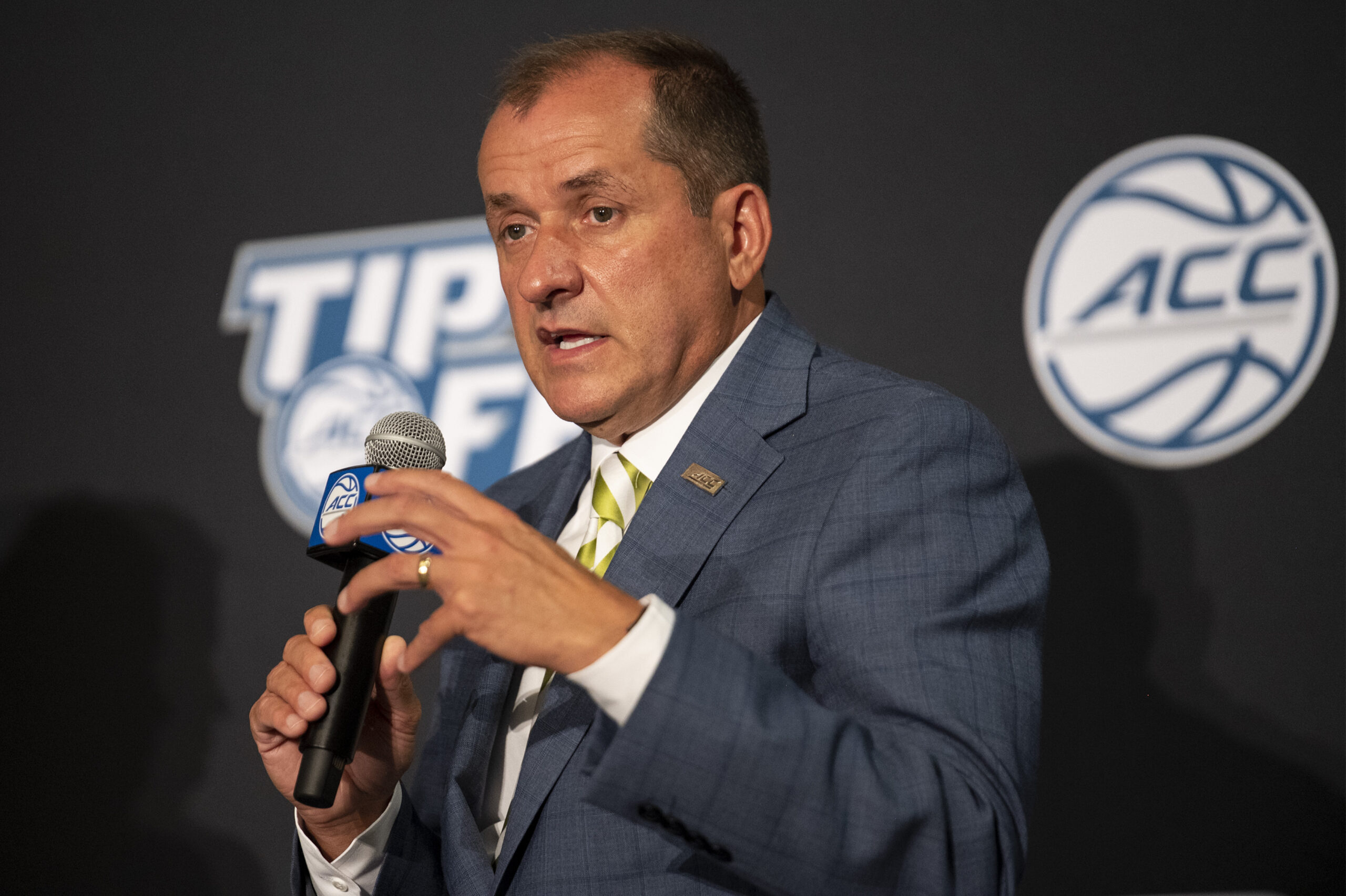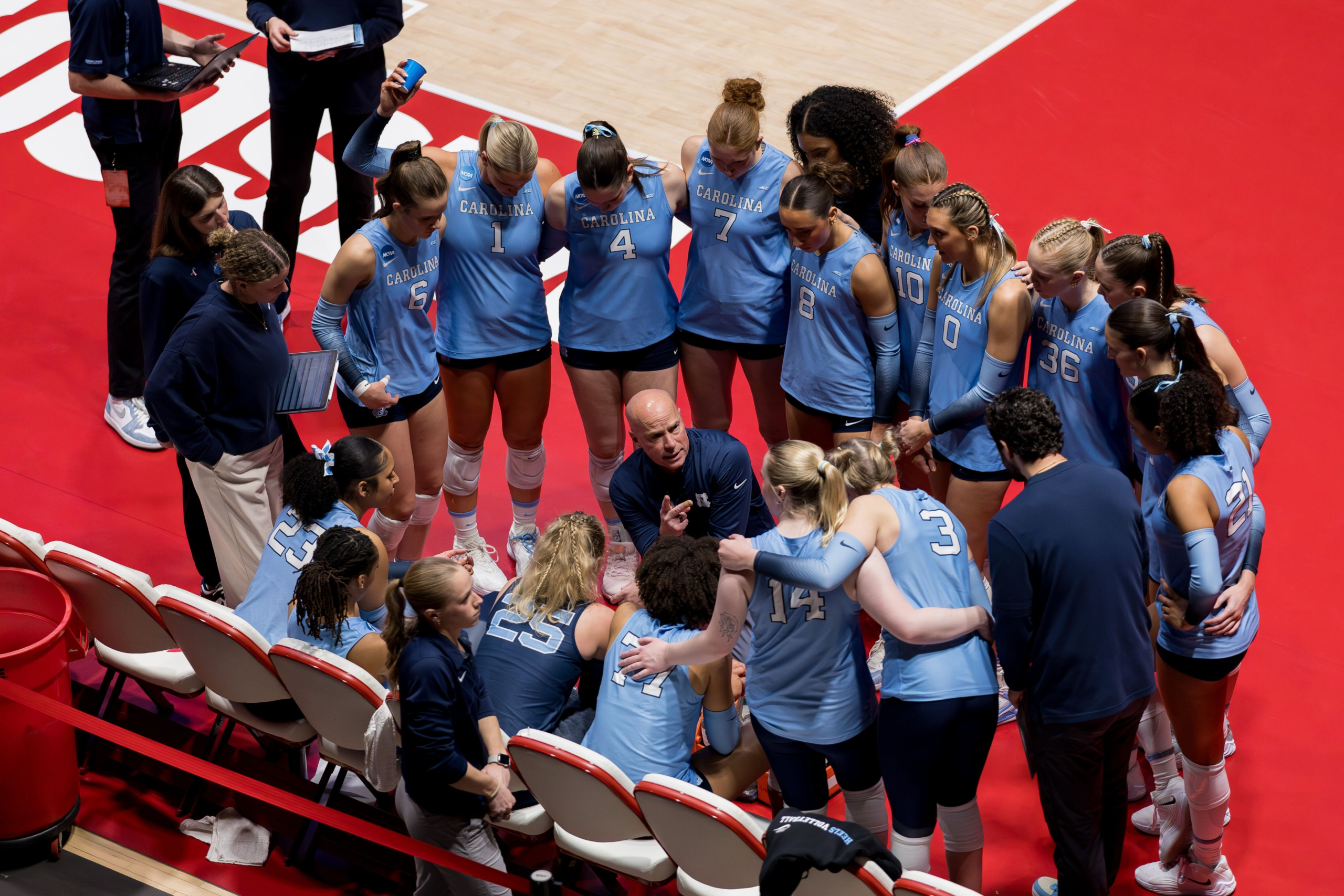It is still unclear how a new rule from the NCAA will impact the ability of certain cities in North Carolina to host the men’s basketball tournament in future years.
At least one potential host site is taking a proactive approach when fighting to keep its share of March Madness.
The NCAA Board of Governors adopted a rule last week that will require sites hosting or bidding on NCAA events to “demonstrate how they will provide an environment that is safe, healthy, and free of discrimination, plus safeguards the dignity of everyone involved in the event.”
This rule does not mention North Carolina’s controversial House Bill 2 in particular, but it was passed by the board just over one month after North Carolina’s law was passed through the General Assembly and signed by Governor Pat McCrory in a whirlwind special session on March 23.
GOP leadership has continued to call the law “common sense” legislation that protects North Carolinians. Meanwhile, the state is being sued by groups who maintain the law is among the worst pieces of anti-LGBT legislation in the nation. HB2 requires transgender individuals to use the bathroom and changing facility that corresponds with their birth certificate rather than their gender identity. The law also strips local nondiscrimination ordinances that went beyond the statewide policy and makes other changes to local ordinances.
Now this new legislation appears to jeopardize a tradition in the Tar Heel state, hosting NCAA Tournament basketball games – and raking in money – during the early postseason festivities.
Greensboro Coliseum vs. Time Warner Cable Arena
The new NCAA rule seems to directly impact the Greensboro Coliseum, which is owned and operated by the city, as the Coliseum prepares to host the first two rounds of the men’s basketball tournament next March.
Meanwhile, the City of Charlotte owns 2018 host site Time Warner Cable Arena, but the operations of the facility fall under the purview of the Charlotte Hornets, according to city officials.
The distinction means that it is hard to find a scenario where the Coliseum would be exempted from the portion of HB2 that requires multi-occupancy restrooms in public agencies to “be designated for and only used by persons based on their biological sex.”
A statement from an NCAA spokesperson said the cities would have to prove they could host the events to the NCAA.
“The information must be reported to the Board of Governors Ad Hoc Committee to Promote Cultural Diversity and Equity and full implementation is expected.”
Greensboro Mayor’s Proactive Approach
From an economics standpoint, the Greensboro Convention and Visitors Bureau is projecting that hosting the first two rounds of the 2017 NCAA Tournament will result in nearly $14.5 million worth of an economic boost to the city.
In a letter provided to WCHL dated April 12, Greensboro Mayor Nancy Vaughan wrote to NCAA President Mark Emmert to tout the city’s inclusive nature – even before the NCAA adopted the new rule.
Vaughan wrote, “I wanted to personally assure you that the City of Greensboro is a progressive, open-minded community with a long-standing tradition of support for members of the LGBT community.”
Vaughan told Emmert that the City Council had passed a resolution opposing House Bill 2 by an 8-1 vote at a meeting on April 5 and that a 2015 evaluation from the Human Rights Campaign determined Greensboro had the highest Municipal Equality Index among any city in the Carolinas.
The letter from Vaughan said that the Coliseum “has been at the forefront of this issue, having gender neutral restrooms available for over 20 years.” Vaughan said that these facilities are offered “for the comfort and inclusion of all patrons.”
A spokesperson with the Greensboro Coliseum Complex said in an e-mail that they have not heard directly from the NCAA as of late last week and that the letter from Vaughan “hopefully addressed any potential concerns of Greensboro as a host city/site.”
Varying Levels of Enforcement
The line differentiating enforcement requirements for the Coliseum and TWC Arena is blurry, even to those trained to find them.
Trey Allen, an assistant professor of Public Law and Government at the UNC School of Government, wrote in an e-mail to WCHL that, “It seems pretty clear to me that [the multiple occupancy bathroom] requirement extends to a civic center that is owned and operated by a municipality.” But he adds, “HB2 doesn’t expressly address the extent to which its bathroom provisions apply in such a situation.” Allen went on to say that arguments could be made from each side whether TWC Arena would fall under the purview of HB2 and that “clarification by the General Assembly or the courts may be necessary to resolve this issue.”
Lawyers with the American Civil Liberties Union of North Carolina, via spokesperson Mike Meno, said they believe “the best reading of HB2 is that it would apply to arenas that are owned by localities in the state.” That would go beyond the Coliseum to being enforced in a situation where the building is leased to a private tenant, as it is in Charlotte.
Officials with the City of Charlotte and within the Hornets organization did not respond to a request for comment regarding the enforcement of HB2 in TWC Arena.
No More NCAA Tournament in NC?
North Carolina has been a popular destination for the NCAA Tournament. TWC Arena has hosted the event in 2008, 2011 and 2015. The Coliseum has hosted the men’s basketball tournament games on 13 occasions, according to Vaughan’s letter to Emmert. PNC Arena in Raleigh – which is owned by the Centennial Authority, a body created by the North Carolina General Assembly in 1995 – has also been a popular destination for early round games.
Whether the NCAA Tournament will be making a return trip to Tobacco Road remains to be seen.



